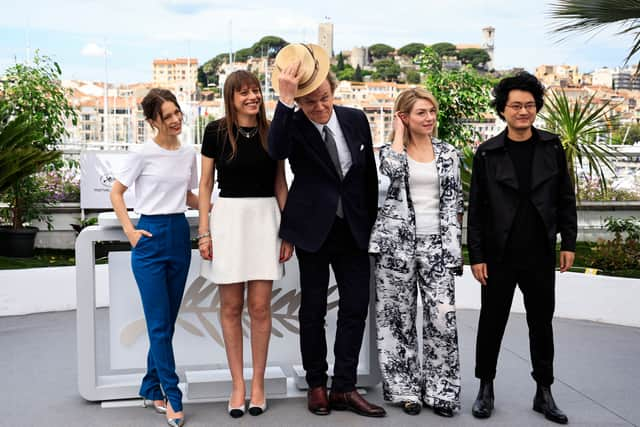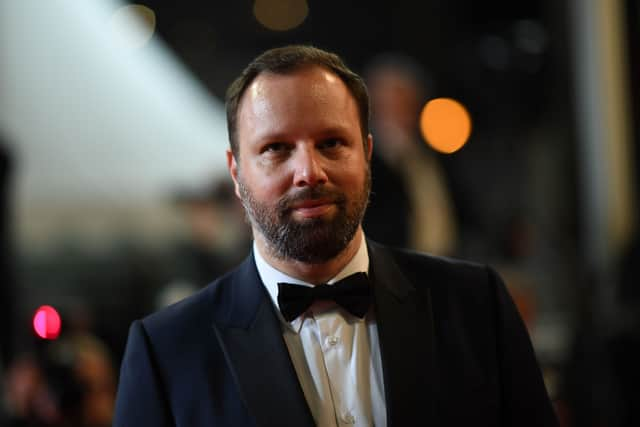Cannes 2023; Cate Blanchett’s feature The New Boy screens today, but what is ‘Un Certain Regard’?
People in this article
Cate Blanchett will take centre stage later today at Cannes Film Festival 2023, as she joins Australian director Warwick Thornton for the screening of The New Boy, part of Cannes’s line up of films under the “Un Certain Regard” category. This would mark Blanchett’s ninth time at the festival, which includes her time as president of the Grand Prix jury in 2022.
The film, set in 1940s Australia, tells the story of a nine-year-old Aboriginal orphan boy who arrives in the dead of night at a remote monastery, run by a renegade nun (Blanchett), where his presence disturbs the delicately balanced world in this story of spiritual struggle and the cost of survival.
Advertisement
Hide AdAdvertisement
Hide AdThe film marks the second time Warwick Thornton has screened at Cannes Film Festival, but he already has established himself as a festival favourite; in 2009 he premiered his film Samson and Delilah which earned him the Caméra d’Or Award - a distinction Cannes hands out to first-time directors with a jury solely dedicated to this prize.
But while Warwick Thornton and naturally Cate Blanchett are two powerhouse names now when it comes to Australian cinema, the film itself hasn’t been included in the main “in competition” category (which Wes Anderson hopes to capture with his new film, Asteroid City) but instead the more avant-garde “Un Certain Regards” category, with judging for that competition led by John C McGinlay.
So what is the difference between films screening “in competition” and those screening as part of “Un Certain Regard”? Peopleworld is here to clear up the differences between the two…
What is the film category ‘Un Certain Regard’ at the Cannes Film Festival?


For those that are concerned that Hollywood blockbusters are starting to take over what has been considered at times an art-house festival, then “Un Certain Regard” is very much the film category for you.
Advertisement
Hide AdAdvertisement
Hide AdThe Un Certain Regard section was introduced in 1978 to provide a platform for films that don't fit into the traditional criteria of the main competition but still exhibit artistic merit. The section aims to highlight emerging filmmakers, bold narratives, and diverse cinematic voices from around the world.
Films selected for Un Certain Regard often explore unconventional themes, experiment with storytelling techniques, or present fresh perspectives. These films offer a diverse range of styles, genres, and cultural backgrounds, creating a platform for artistic exploration and discovery.
The jury for Un Certain Regard presents several awards, including the Un Certain Regard Prize, which recognizes the best film in the section. This distinction provides recognition and exposure to filmmakers and their unique cinematic visions.
Have there been any success stories from the Un Certain Regard category?


There have been many - but that depends on what you regard as success. In terms of films and directors that became household names and entered the public conscience, two films that premiered as part of this category have gone on to achieve that status.
Advertisement
Hide AdAdvertisement
Hide AdDogtooth (2009) - Directed by Yorgos Lanthimos, this Greek film won the Un Certain Regard Prize at Cannes and went on to receive international recognition, including an Academy Award nomination for Best Foreign Language Film. Lanthimos would go on to receive a Best Director and Best Picture nomination for his film The Favourite in 2018.
Blue Is the Warmest Colour (2013) - This French coming-of-age drama, directed by Abdellatif Kechiche, won the Palme d'Or in the main competition at Cannes. It received critical acclaim and achieved commercial success worldwide and has become one of the most important LGBTQIA+ film to enter the cinema universe and one of the best films of 2013.
Comment Guidelines
National World encourages reader discussion on our stories. User feedback, insights and back-and-forth exchanges add a rich layer of context to reporting. Please review our Community Guidelines before commenting.
